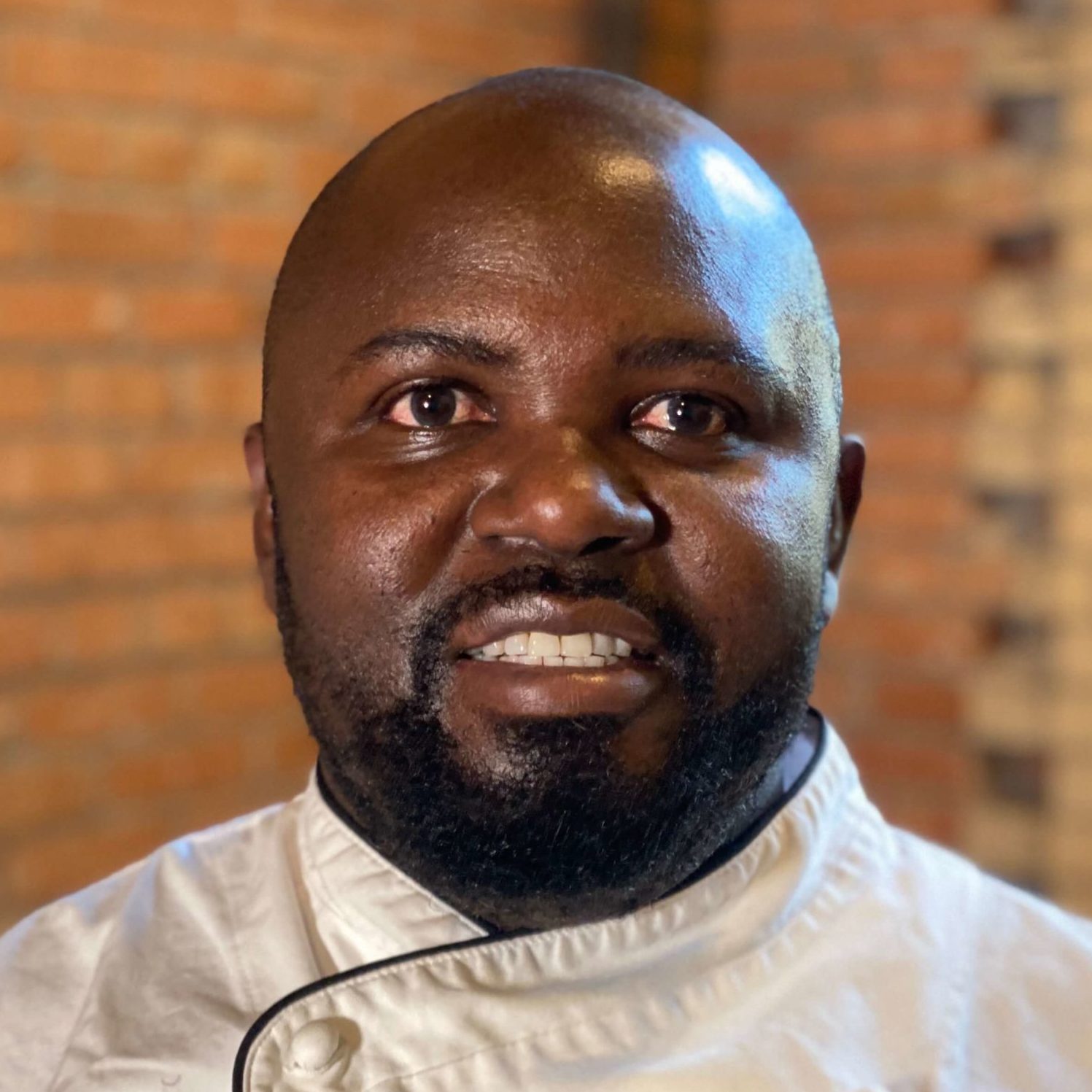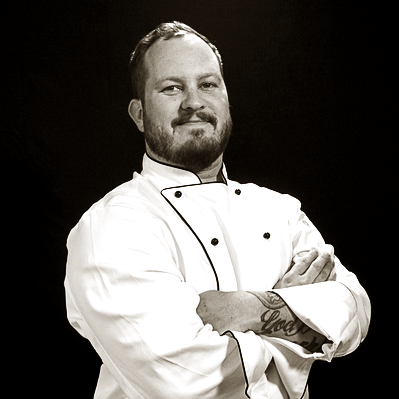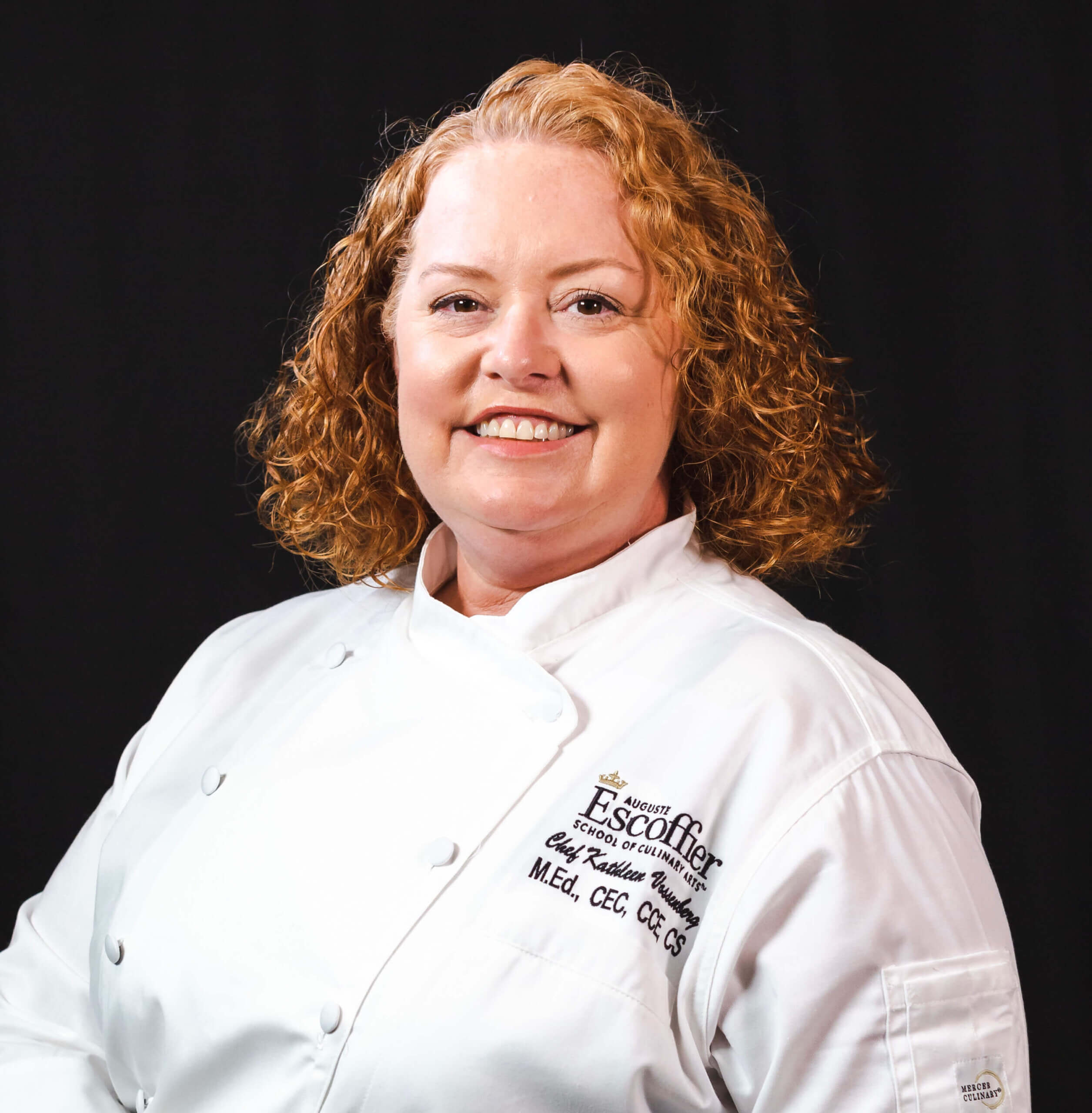Listen to This Article:
Culinary school can teach you how to cook, right?
Well, that’s partially true. But what does it mean to “know how to cook?”
Does it mean following a recipe? Many people can do that, but they wouldn’t call themselves cooks or chefs.
Does it mean having the ability to recognize a perfectly cooked dish or anticipate how different flavors will work together? That’s closer. But it’s still just a tiny fraction of what students explore in a quality culinary program.
So…what can you learn in culinary school?
No one can say what you specifically will learn in culinary school. What if you miss a day? What if you struggle with a certain lesson or skill? What if you learn something…and then forget it? After all, most people can’t tell you what sine, cosine, and tangent are, even though they were surely covered in middle or high school math.
What you learn comes down to many different factors. So perhaps a better question is, “What can culinary school teach?” Different culinary schools and programs will have unique courses and goals for their students. But to give you an idea, here’s what you can expect to find in the curriculum for online students pursuing a Diploma in Culinary Arts and Operations at Auguste Escoffier School of Culinary Arts.
Foundational Cooking Skills
Cooking fundamentals are at the core of culinary education. Cornerstone subjects from food safety to cooking methods lay the foundation for everything that comes after. You can’t become the next Michelin-starred chef without starting with the basics.
Escoffier’s online courses are designed for hands-on training, just like the on-campus programs. Students can attend live sessions and watch demonstration videos, in lieu of sitting in classes in person, before completing assignments and practicing techniques in their home kitchens.
Food Safety & Sanitation
While it’s tempting to jump right into cooking, there is a topic that almost always comes first in culinary training—food safety. Cooks and chefs have a responsibility to prevent cross-contamination or spoilage that can lead to illness or food poisoning. Proper hygiene, food handling, food storage, and cleaning standards must be practiced diligently to keep cooks and their customers safe.
Knife Skills
Be prepared to cut lots of veggies! Just like a musician has to learn scales and a writer needs to perfect the rules of grammar, a cook seeks to become an expert at all different types of cuts.
What is a small dice vs. a large dice, and what applications would you use them for? What is a chiffonade? Brunoise? Julienne? Each term refers to a specific type of cut, and a skillful cook knows them all.
The Fundamentals of Baking & Charcuterie
Culinary arts students may not aspire to become bakers, but they should still know the baking basics. An introduction to bakeshop staples like quick breads (muffins, pancakes, biscuits) and straight dough (flatbread and French bread) plus patisserie helps them to understand what happens in the oven. It’s not magic. It’s chemistry!
Did you know there were historically 100 folds in a chef’s toque, signifying the number of ways to cook an egg? You can explore many of these techniques, as well as the cold side of things with charcuterie and garde manger, including pâtés, terrines, and accoutrements.
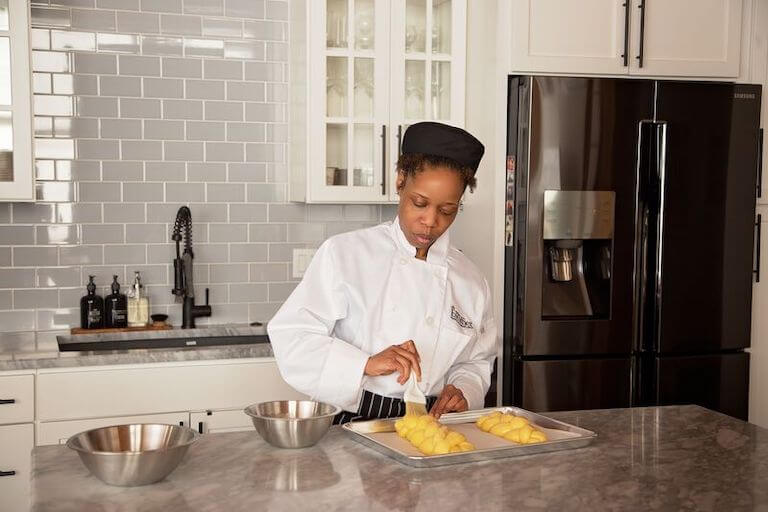
Cooking Methods and Seasoning
What effect does heat have on food? When do you boil and when do you simmer? How is roasting different from baking? The different cooking methods are key to understanding the “why” behind a recipe.
Seasoning is another vital component. Knowing when to add seasonings, which kinds to use, and in what quantities can be the difference between so-so and sublime.
Local and Global Cuisines
The world is full of gorgeous and diverse culinary traditions. Where do you fit in?
Discover Where Food Comes From and the Relationship Between Chef and Maker
Food doesn’t magically appear at the kitchen door on delivery day. It’s grown in the ground or raised on a farm, and familiarity with that process is an important part of a chef’s education. With Farm to Table, students explore the relationship between the chef and the farm, ranch, or orchard where food is produced. Students may also be presented with concepts of traditional and nontraditional farming, plus the impact of food-sourcing on the planet.
Take a Global Journey through Cuisines From Around the World
In World Cuisines, students explore the classic cuisines of France and Italy, plus the diversity of culinary traditions from Europe, the Middle East, Asia, and American regional cuisines.
The goal isn’t to become proficient in all of the cuisines of the world—that’s a lifetime pursuit! It’s to learn how to research the dishes and flavors of a specific cuisine in the future.
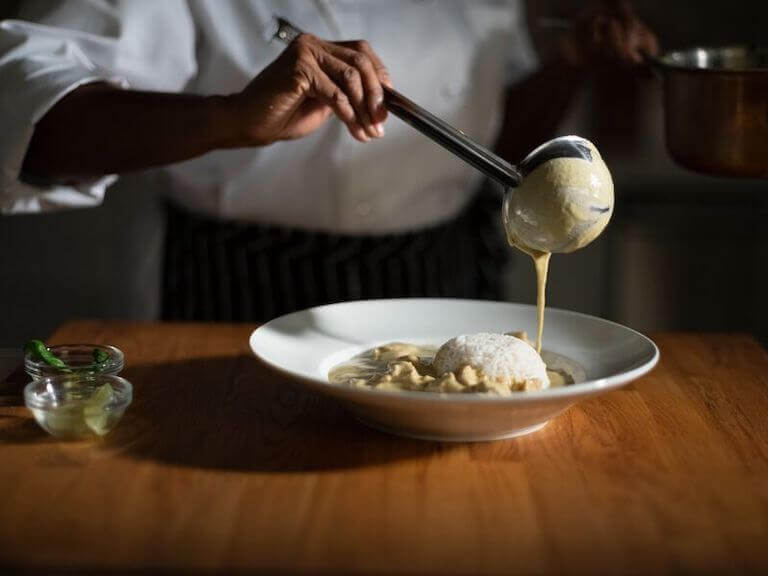
Thai green curry
Foodservice and Business Education
The food service business is a business. Your creative dishes may be delicious, but they must also be profitable! Business education is beneficial for well-rounded cooks who see both the artistic side and the practical side of the industry.
Types of Foodservice Operations
Full-service restaurants are just one type of food service operation. There are many more, like catering, food trucks, ghost restaurants, pop-ups, quick service, and more. Each has its own challenges and opportunities!
Skills You May Need to Succeed as a Manager
Managers in the culinary industry must be strong leaders and excellent communicators. The higher one rises in the ranks of the brigade de cuisine, the more of these skills they may need to display. Chefs and kitchen managers must be able to motivate and train their employees while also providing a safe and supportive work environment.
Purchasing Inventory and Controlling Food Costs
Without careful culinary math, a menu can easily become a source of loss rather than profit. In school, students may complete coursework in purchasing and receiving inventory, inventory management to reduce waste, and controlling food costs at all touchpoints.
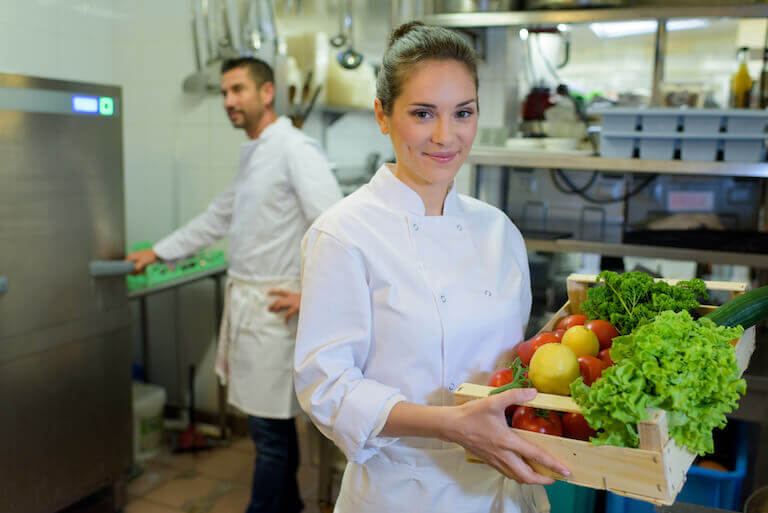
The Menu as Communication and Sales Tool
Once you calculate food and labor costs, how does that translate into a menu cost for the customer? Pricing a menu is a vital task for the future chef. Plus, the menu serves another purpose: it’s a tool of communication and education for the customer. It’s their primary guide to your food offerings and the first place they look when researching a restaurant. How does your menu match your concept?
Business Planning, Ethics, and Marketing
Students may work on business planning, financing their operations, ethics, legal concerns, and marketing. These are all valuable topics that can help students to build a healthy business. At the end of the Culinary Entrepreneurship course, they are even tasked with presenting a business plan for a food service operation to put their theoretical knowledge to use.
The Externship: Discover How It Can Work in the Real World
No matter how thorough your culinary school curriculum, there will always be a difference between the classroom experience and the real-world experience. This is why every Escoffier program includes one or two externships.
This experience provides students an opportunity to work alongside culinary professionals and hone their skills. Online students also complete these hands-on industry externships.
Externships may be either paid or unpaid. Since each student is responsible for securing their own externship, you have the option to look for a paid placement if that’s important to you.
A day in the life of an Escoffier extern.
Beyond the Curriculum
While additional lessons you collect along the way may not be specifically listed on the curriculum, they’re nonetheless important parts of what culinary school can teach you.
Making a Plan—and Following Through
In culinary school, you may have to come up with a plan that allows you to complete the day’s assignments in a limited amount of time. If your future takes you to a professional kitchen, this is a skill you’ll likely use every single day. Cooks and chefs have a long list of tasks to complete before service, and they must be completed to a high standard. Cutting corners leads to sub-par food, so following the plan on a timeline is key to a successful cook.
The online learning model allows students to complete their coursework on their own schedule. This can be ideal for busy parents or people with full-time jobs. As long as you meet course deadlines, you can watch training videos and complete your assignments when you have time!
But it does also require careful planning to make sure you’re meeting all of your obligations. Students must get the supplies they need, do the coursework, and plan time to cook and clean.
The Importance of Organization and Cleanliness
A clean, organized kitchen is a successful kitchen. And you may find that the more attention paid to cleanliness, the more attention paid to food quality as well. This is what Escoffier graduate Parker Wilks-Bryant found during his externship at award-winning restaurant Pujol in Mexico City. They deep-cleaned the kitchen up to eight times per day!
In school, students practice “working clean,” keeping their mise en place tidy and their workstations free from dirty dishes and food scraps. This is especially important for online students since their workstations are their home kitchens!
Get Out What You Put In
As with most situations in life, culinary students get out what they put into their time in school. Students who show up on time and ready to work with no distractions typically have a richer experience than those who rush in underprepared and with their minds scattered in 100 directions.
Are you ready to put in the work and earn your culinary arts degree or diploma? To learn the fundamentals of great cuisine and smart menus? To take your career in food to the next level?
We’re ready to help. Financial aid is available to students who apply and qualify, as well as a variety of culinary scholarships. Get in touch to ask any questions you may have and start planning your next steps.
LEARN MORE ABOUT CULINARY EDUCATION WITH THESE ARTICLES:
- How Long Does it Take to Finish Culinary School?
- Can You Go to Culinary School with No Prior Experience?
- What Are the Different Chef Certifications?
*This information may not reflect every student’s experience. Results and outcomes may be based on several factors such as geographical region or previous experience.

